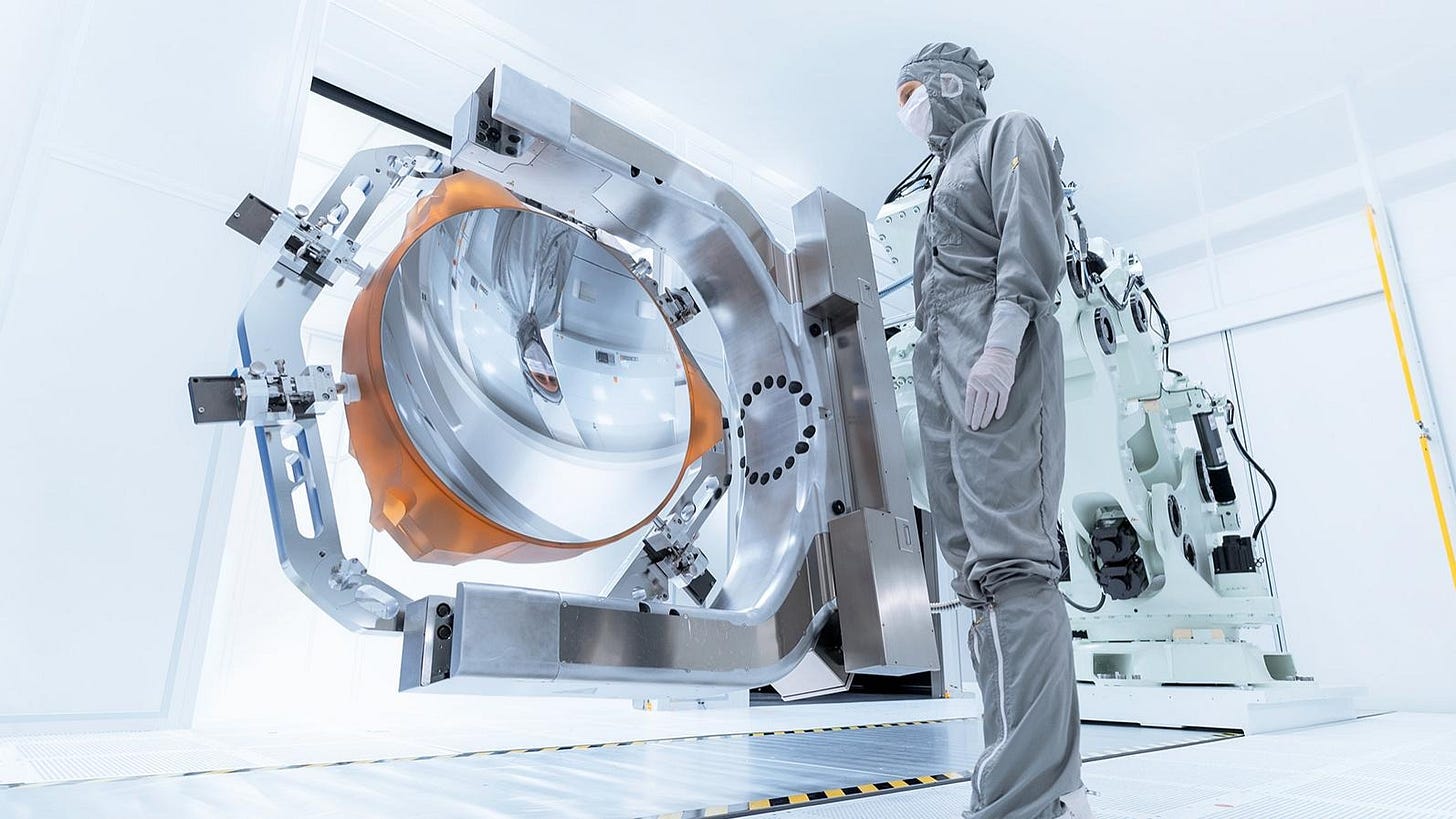Carl Zeiss’ Tradition of Knowledge in Optics
Hopes for further scaling computing power for artificial intelligence currently all depend on one foundation-owned German firm that manufactures mirrors and lenses with atomic precision.

Carl Zeiss is a privately-held German manufacturer of optics and optoelectronics. The company makes the key optical components, namely extremely specialized mirrors and lenses, used in the world’s most advanced semiconductor manufacturing machines that are made by the Dutch company ASML. Carl Zeiss estimates 80% of all chips made worldwide are made with Zeiss optics, a figure which includes 100% of the most powerful chips requiring ASML’s extreme ultraviolet (EUV) lithography machines.1 Without the unique optical components made by Carl Zeiss, ASML’s most advanced machines would be completely inoperable, meaning the world’s most powerful computer chips designed by companies like Nvidia or AMD could not be manufactured. The growth of the entire global software, computer, and AI industries, therefore, currently depends on the ability of Carl Zeiss to manufacture sufficiently precise mirrors and lenses. Despite its modern technological relevance, Carl Zeiss is not a new company but the container for a tradition of knowledge in optics dating back to the 19th century and multiple early scientific pioneers in the field.2

